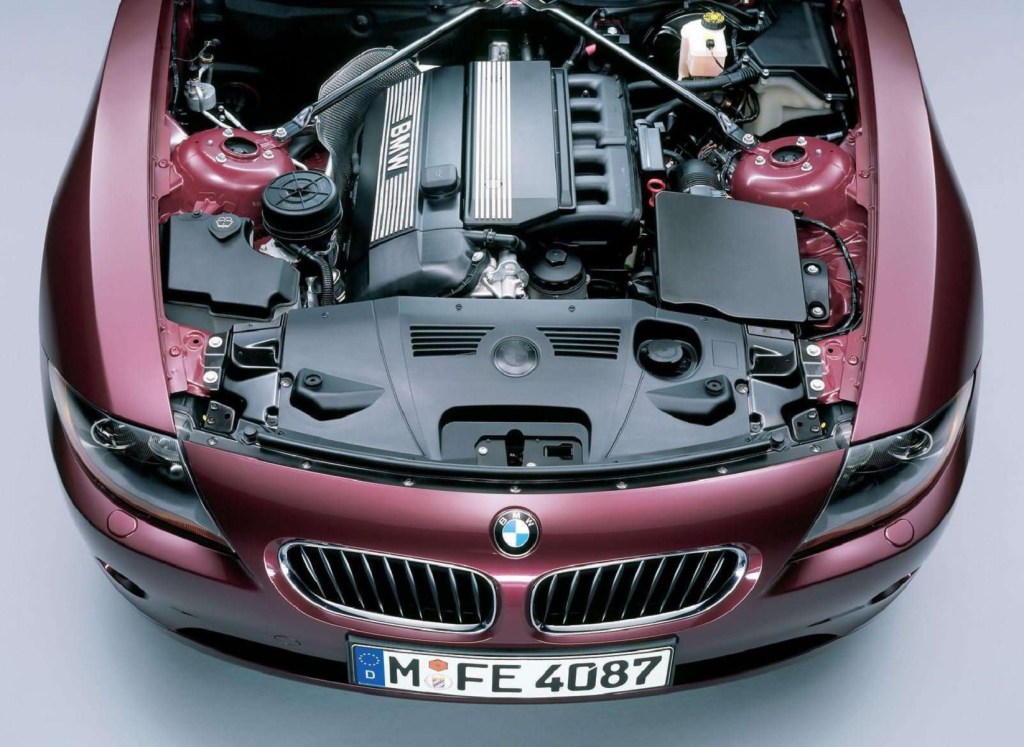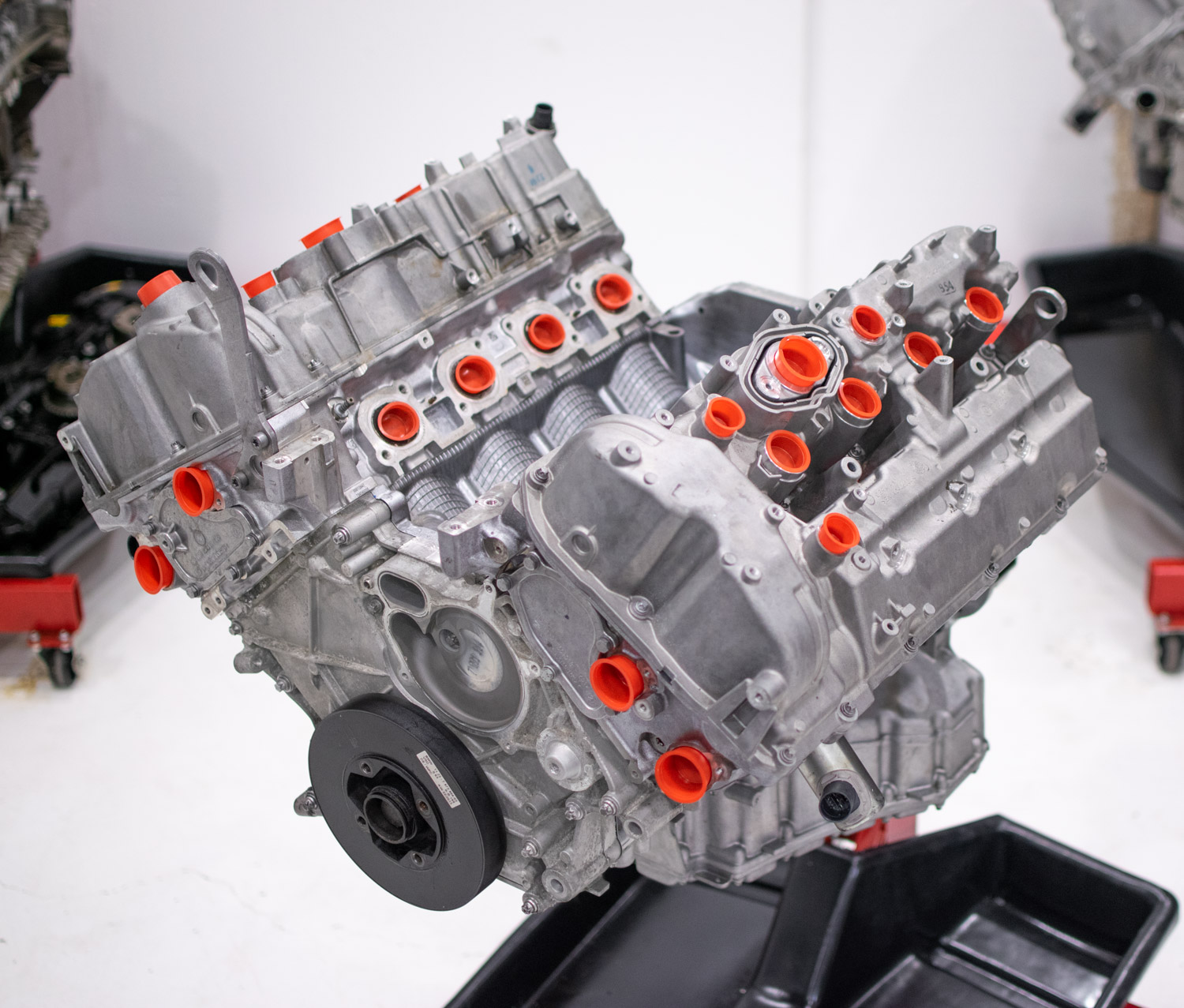Top 5 BMW Engine Technologies Revolutionizing the Automotive Industry
Top 5 BMW Engine Technologies Revolutionizing the Automotive Industry
Blog Article
Unveiling the Intricacies of Next-Generation Power Units: a Deep Study Advanced Engine Layouts and Innovations
In the realm of automobile engineering, the ruthless quest of performance, sustainability, and efficiency has thrust the development of power units to unprecedented elevations. As we depend on the precipice of a new period in transportation, the ins and outs of next-generation engine designs beckon us to check out the advanced innovations and developments that assure to redefine the driving experience. From advanced products that push the limits of longevity and weight decrease to advanced turbocharging and supercharging systems that elevate power result to brand-new degrees, each part of these power systems holds a crucial to opening the future of automobile engineering. Delving much deeper right into the realms of exhaust control, smart engine management systems, and the horizon of power system development, we locate ourselves on the cusp of a change that promises to improve the landscape of flexibility as we understand it.
Advancement of Engine Materials

The shift towards advanced engine products has actually likewise enabled engineers to make engines with higher power results while maintaining gas performance standards. For instance, making use of light-weight materials reduces the overall weight of the engine, causing boosted gas economic situation and lower discharges. Additionally, improvements in materials technology have allowed for better thermal management within engines, leading to increased integrity and durability.
Turbocharging and Supercharging Technologies
How do Turbocharging and Supercharging Technologies reinvent engine performance and efficiency in modern-day lorries? Supercharging and turbocharging are technologies that considerably boost engine performance by raising the quantity of air intake right into the combustion chamber. Turbocharging attains this by utilizing a turbine driven by exhaust gases to pressurize the consumption air, while turbo charging utilizes a belt- or chain-driven compressor to accomplish the exact same effect.
These innovations make it possible for smaller sized, more fuel-efficient engines to create power equal to bigger ones, recognized as downsizing. By forcing even more air right into the cylinders, turbocharging and turbo charging boost combustion efficiency, causing raised horsepower and torque result without a considerable increase in engine dimension. This leads to better acceleration, lugging ability, and total driving performance.
In addition, supercharging and turbocharging add to boosted gas efficiency by enabling the use of smaller sized engines that take in much less fuel under normal driving problems - bmw engine. This combination of improved performance and effectiveness has actually made turbocharging and supercharging important components of several contemporary engine designs
Discharge Control and Environmental Impact
With increasing global issues concerning air quality and environmental sustainability, the application of exhaust control modern technologies in vehicles plays a critical role in minimizing damaging contaminants released into the ambience. Modern cars are furnished with sophisticated emission control systems that assist reduce the environmental effect of automobile operations. Catalytic converters, as an example, are developed to transform harmful gases such as carbon monoxide gas, nitrogen oxides, and hydrocarbons right into much less unsafe materials like co2 and water vapor.
Additionally, innovations in engine modern technology, such as the assimilation of exhaust gas recirculation systems and discerning catalytic reduction, have substantially added to reducing exhausts. These technologies operate in tandem to maximize combustion performance and reduce the launch of damaging pollutants right into the air. Additionally, the advancement of hybrid and electrical vehicles stands for an important step towards decreasing the total ecological footprint of the transportation industry.
Intelligent Engine Monitoring Systems

In addition, these systems make it possible for lorries to satisfy rigorous exhausts requirements without endangering performance, giving a more ecologically pleasant driving experience. The assimilation of expert system and artificial intelligence capacities in engine monitoring systems remains to press the limits of what is feasible, bring about additional renovations in efficiency, reliability, and overall vehicle efficiency. bmw engine. As automotive technology developments, intelligent engine management systems will play an important role in forming the future of transport in the direction of a more lasting and efficient direction
Future Trends in Power System Growth
As intelligent engine administration systems lead the way for boosted control and optimization in contemporary lorries, future patterns in get more power system growth are positioned to redefine the landscape of auto propulsion technologies. Among the key patterns driving advancement in power unit development is the change towards electrification. With a raising concentrate on sustainability and lowering carbon exhausts, hybrid and electrical powertrains are ending up being a lot more widespread in the automobile sector. These alternative power sources supply boosted effectiveness and efficiency while lining up with strict environmental policies.
Another considerable trend is the assimilation of sophisticated products and producing methods. Light-weight products such as carbon fiber and light weight aluminum are being made use of to decrease total automobile weight, improving gas efficiency and performance. Additionally, advancements in 3D printing and additive production are enabling the manufacturing of complicated engine parts with greater accuracy and longevity.
In addition, fabricated knowledge and machine learning are playing an important role in enhancing power unit efficiency. These modern technologies enable for real-time tracking and adaptive control, leading to a lot more effective and dependable power shipment. On the whole, future patterns in power system growth are tailored in the direction of sustainability, efficiency, and efficiency, driving the automotive market in the direction of a brand-new era of propulsion innovations.

Final Thought
In final thought, the innovations in engine products, turbocharging, exhaust control, and intelligent administration systems have paved the method for next-generation power units. The intricate styles and developments in modern-day engines display the recurring development of automotive modern technology.
Checking out the modern developments in engine products has actually been crucial in enhancing the performance and effectiveness of contemporary engines. Over the years, the evolution of engine materials has actually played a crucial function in pushing the limits of what engines can accomplish.The change towards progressed engine materials has also enabled designers to make engines with greater power outcomes while preserving gas efficiency standards.The implementation of smart engine management systems in modern-day automobiles has actually transformed over at this website the way engines are regulated and enhanced for efficiency and performance. By gathering information in real-time and evaluating Web Site it with advanced formulas, intelligent engine monitoring systems can adjust to driving designs, ecological aspects, and engine wellness to make the most of power result while decreasing gas consumption and exhausts.
Report this page